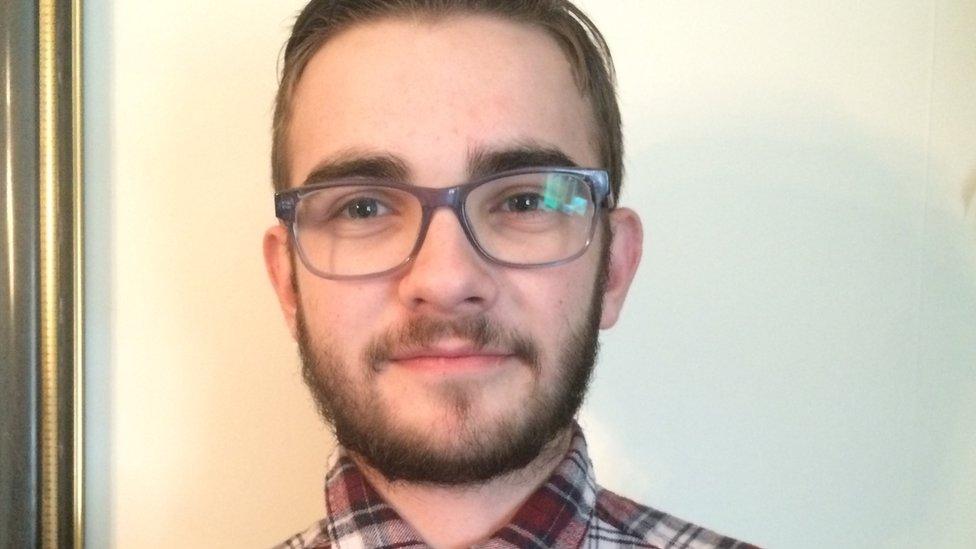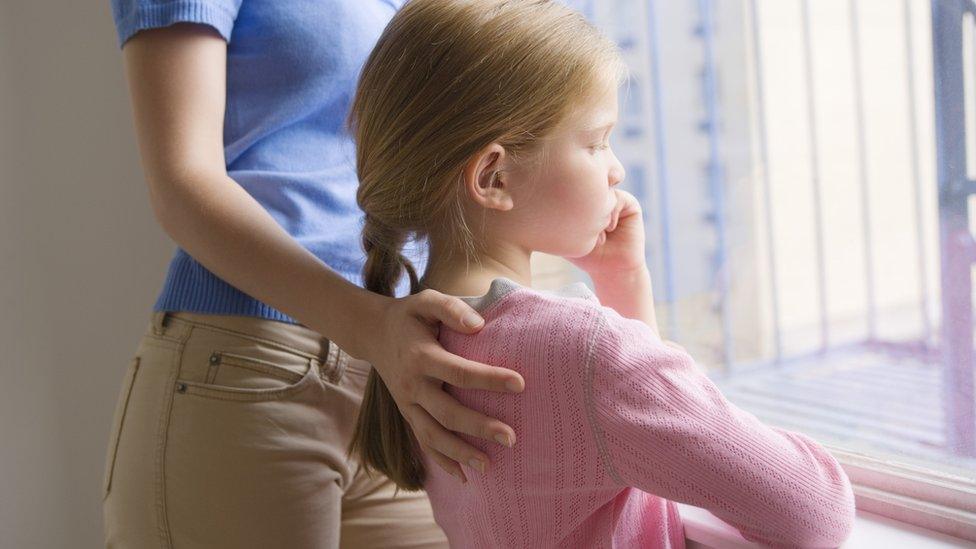Sons 'fear talking to their fathers about mental health'
- Published

Keenan says he is happy to speak openly about his depression
When depression hit Keenan Atkins in early secondary school, he was scared to talk to his father about it.
Men of his dad's generation are afraid to talk about their feelings in case they are seen as "weak", he says.
And this seems a common experience for teenage boys, with 49% telling a survey they would feel uncomfortable talking about mental health with their dads.
A third of boys also told the survey, for the Time to Change campaign, their fathers do not talk about "feelings".
The poll of 1,000 16- to 18-year-olds suggests more than a quarter of young men of this age experience mental health symptoms on a weekly basis.
The research aimed to shed light on how teenage boys' own attitudes to mental health are influenced by their fathers' behaviour.
'Generational differences'
Keenan, who is now 18, said: "My dad and I are both quite naturally introverted people so we find it difficult to form close relationships.
"This has made it difficult to open up to each other about what we are going through."
He added: "His generation didn't get the chance to speak about their feelings and they are afraid that in doing so they might be seen as weak."
Even though Keenan's father himself had suffered from depression, the teenager still felt unable to talk openly with him.
"I have a fear that he will try to find other explanations as to why I am feeling sad, rather than depression.
"Only because he has been through it and wouldn't want me to experience the same."
'Negative cycle'
However, the survey suggested that when fathers had encouraged their sons to be open about their mental health, 70% of teenagers were comfortable enough to do so.
The mental health awareness campaign, run by charities Mind and Rethink Mental Illness, said the findings showed that young men take cues from their fathers when it comes to their attitudes towards mental health.
Jo Loughran, interim director at the campaign, said: "We want to encourage all dads to talk more openly so that if and when their sons do develop mental health problems, they can be more supportive of them.
"If we can break the negative cycle of men feeling unable to speak out, we can create a new generation of men who no longer feel isolated, ashamed and unable to reach out for the help that they, and everyone around them, needs to successfully manage their mental health."
- Published18 October 2016

- Published9 November 2015
